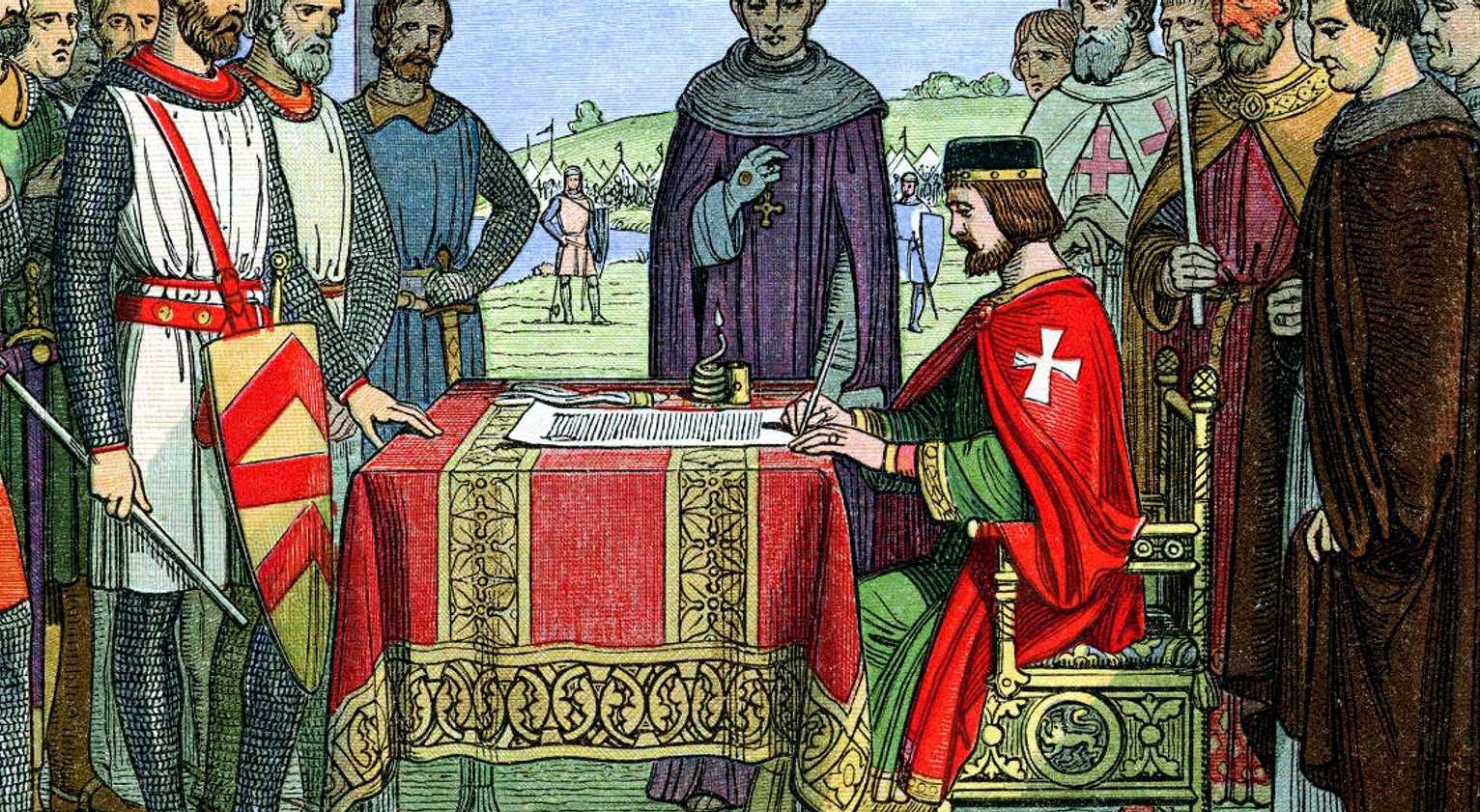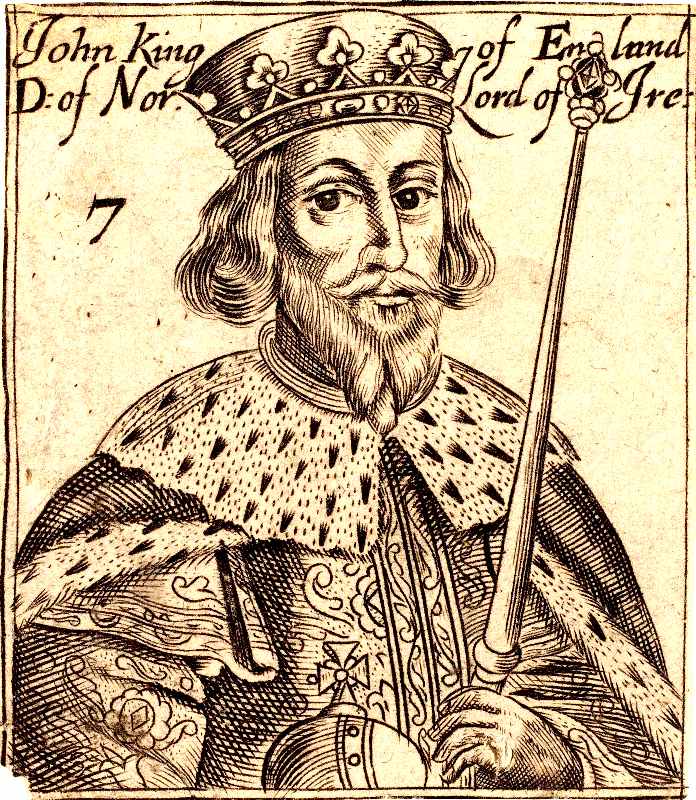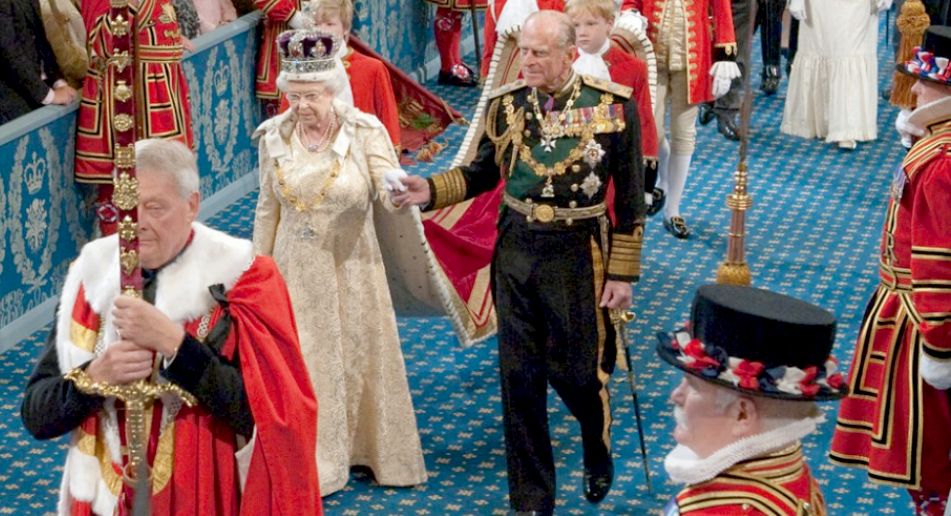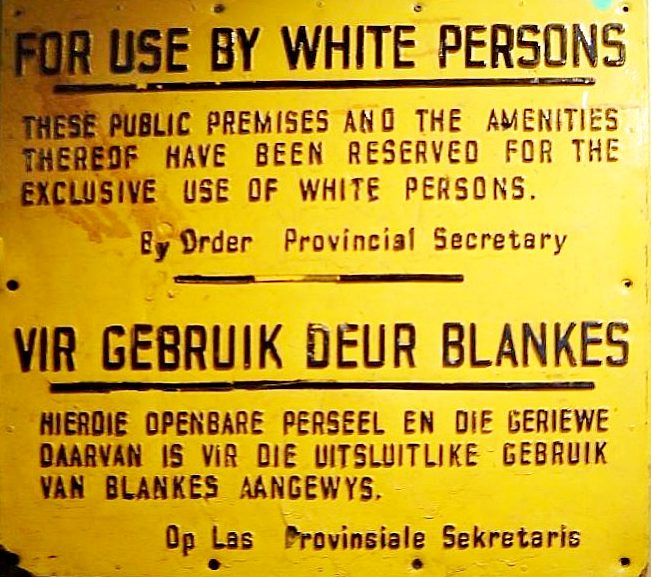|
GREAT CHARTER 1225
HOME | CASE STUDIES | HISTORY | LAW | POLITICS | RIGHTS | SITE INDEX
|
|
SALISBURY CATHEDRAL - Magna Carta (Latin for "Great Charter") is one of the most celebrated documents in English history. In 2009 UNESCO entered Magna Carta into the Memory of the World Register – the list of the world’s most important documents. The best preserved of only four surviving copies is displayed in the Chapter House at Salisbury Cathedral with its own exhibition.
British law is confusing because there is no Constitution; no set of rules cast in stone that everyone must abide by - and the Royals appear to want to keep it that way to retain control with peerages, knighthoods and other honours, plus of course control of the Courts via the appointment system.
The Magna Carta is an interesting document, telling of the transition from Royal dictators absolute, to diluted powers conferred on other powerful landowners. It was not designed to give rights to the common man, but did so more or less by accident. And so Human Rights began to evolve - as they are still evolving today.
It is a slow and painful process, no less bloody that battles of World War One and Two in the suffering such evolution causes to the victims of crime, much of which is occasioned by local authorities as hidden agendas, rather than lawless citizens - of which there are plenty. But it is the calculating nature of civil servants and serving law enforcement officers that is most dangerous. Such abuses of public office must be stamped out.
There is no difference between the Petitioners of 1997 involving Wealden District Council and Sussex police, compared to the Barons and King John.
NOBODY IS ABOVE THE LAW
- NOT EVEN THE KING OR QUEEN OF ENGLAND
England was ruled by King John, the third of the Angevin kings. Although the kingdom had a robust administrative system, the nature of government under the Angevin monarchs was ill-defined and uncertain. Much as the British system tends to deny justice to victims of local authority abuses.
John and his predecessors had ruled using the principle of vis et voluntas, or "force and will", taking executive and sometimes arbitrary decisions, often justified on the basis that a king was above the law.
Many contemporary writers believed that monarchs should rule in accordance with the custom and the law, with the counsel of the leading members of the realm, but there was no model for what should happen if a king refused to do so.
MEANING OF MAGNA CARTA
Magna Carta is Latin for ‘great charter’ and the term was first used in 1217 to distinguish it from the Charter of the Forest, a document that also set out limits on the king’s administration, this time of the royal forest, areas of the country set aside for royal hunting and subject to much harsher laws and restrictions.
Both charters set out what the king could and could not do. In other words, Magna Carta set out the laws which the king and everyone else had to follow for the first time.
Copies of Magna Carta were sent out to be read out in each county of England so that everyone knew of its existence.
CLAUSES REMAINING IN ENGLISH LAW
1) the freedom of the English Church,
2) the "ancient liberties" of the City of London (clause 13 in the 1215 charter, clause 9 in the 1297 statute), and
3) a right to due legal process (clauses 39 and 40 in the 1215 charter, clause 29 in the 1297 statute).
In detail, these clauses (using the numbering system from the 1297 statute) state that:
Of clause 29 (XXIX) the policy makers have been whittling this down so much in recent years that little remains of Article 6 and the right to a Level Playing Field, also known as Equality At Arms.
GREAT CHARTER OF 1297
LINKS & REFERENCE
https://www.britannica.com/topic/Magna-Carta https://www.parliament.uk/magnacarta https://www.historylearningsite.co.uk/medieval-england/magna-carta/
FAIR USE NOTICE
This site contains copyrighted material the use of which has not always been specifically authorized by the copyright owner. We are making such material available in our efforts to advance understanding of environmental, political, human rights, economic, scientific, and social justice issues, etc. We believe this constitutes a 'fair use' of any such copyrighted material as provided for in section 107 of the US Copyright Law. In accordance with Title 17 U.S.C. Section 107, the material on this site is distributed without profit to those who have expressed a prior interest in receiving the included information for research and educational purposes.
For more information go to: http://www.law.cornell.edu/uscode/17/107.shtml. If you wish to use copyrighted material from this site for purposes of your own that go beyond 'fair use', you must obtain permission from the copyright owner.
This site is protected under Article10 of the European Convention on Human Rights and Fundamental Freedoms.
EUGENICS - Unbelievable though it may seem, overt policies were legal until only recently. Covert eugenics policies are rife in many counties, with Britain being one such country that allows council and police officers, banks and other institutions to indulge in an undertow of discriminatory practices that are very hard to prove.
British institutions target white as well as black citizens. The moment any person challenges a council they will find themselves on a black list. Kelly Davis was a builder of African descent who Wansdyke District Council did not like. Nelson Kruschandl is a European who Wealden District Council do or did not like.
You will find that council officers can be quite spiteful despite their positions of trust and duty of care. Once they have taken a dislike to a person who calls into question their judgment, then all departments are given the green light to pile on the agony.
They will call in favours from the police, TV licensing, social security and valuation agencies for starters. Eventually, this will spread to banks and building societies, councillors and members of parliament. Finally, these pillars of society will involve Interpol - and it all starts because you might have the temerity to ask for an explanation as to a decision that is wrong. In one case we know of it started with a tree preservation order that should never have been made.
The object is to apply as much pressure as possible to a person to get them to move out of their district or to sell property cheaply to a favoured developer/occupier. The council officers will arrange for countless Gestapo style visits to premises no matter what the cost to the tax payer.
|
|
This page is © Copyright 2019. We cannot be held liable for the accuracy of the information provided. All users should therefore research matters for themselves and seek their own legal advice and this information is provided simply by way of a guide. Horse Sanctuary Trust UK.
|




